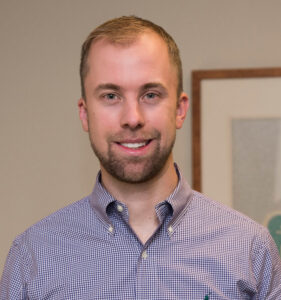By: Tommy Beyer
Hoteliers are constantly pulled in countless different directions on a daily basis. Just think of all of the demands you have of your time. On second thought, don’t think of them; it will only stress you out!
All the meetings and the persistent distractions can do a number on your concentration. You need time to properly digest and then reflect on any information received in order to offer constructive feedback or a fruitful course of action. With this in mind, the first step is to recognize the stark difference between showing up and adding value when you show up.
As a Regional Vice President for Newport Hospitality Group (NHG), around 75% of my time is spent travelling to various hotels. This alone can be quite disorienting, but no doubt my personal mantra of always adding value has helped me achieve this VP role well before my 40th birthday.
So now let me walk you through how I’ve made this happen. To push through any sort of road warrior-related disorientation, I must continuously remind myself that, in order to be truly effective at my job, I must be someone who adds value from the moment I show up to a property to the moment I leave. For this, there are three key differences between the two mentalities.
Difference #1: Engaging
One of the essential differences between showing up and adding value is being fully engaged in whatever you are doing. You can apply the concept to both business and personal settings, and it is fairly easy to differentiate between the two.
Someone who adds value must be engaged during the entire interaction in order for those neurons to fire and generate those insights that will propel the business forward. Our minds are not designed for multitasking, so be achieve this state of mind, you must first consciously practice the art of ‘active listening’ whereby you focus on only one task or person at a time – no email correspondence, no answering your text messages, no social media. And be sure to hold your meetings in a quite office or another room with limited audio or visual distractions.
Other simple ways to engage are by ensuring you have cleared your calendar for the timeslot that you are committed to. While this may seem simple enough, I have been in many meetings where people exit in the middle because they didn’t realize they had another call scheduled. If you are going to participate in a meeting, visit a hotel or even go on a date, make sure you are fully engaging with the person or group you are with. Just by knowing that you are double-booked or have another upcoming appointment will linger on the back of your mind and distract you from fully absorbing what’s presented to you in the moment.
Next, after carefully listening comes the complementary art of asking thoughtful questions. In this case, the old adage remains true, “Think before you speak.” In order to accomplish this, you obviously have to have heard what the other person has said! A large part of this hearing component is therefore not to interrupt the other person, because when you do so you are recruiting different parts of your brain then just your information absorption centers. Take a deep breath, then talk.
Above all, I stress that the hoteliers you work with will know – consciously or subconsciously – when you are actively engaged or not. Don’t be the latter as it is highly demotivating. Strive to be known as someone who is consistently engaged in every setting and your colleagues will be thrilled to engage with you further.
Difference #2: Proper Preparation
Another concrete way to ensure you are adding value to your present situation or scenario is by properly preparing for the event or meeting. This may seem obvious but I am still surprised by how many people decide to ‘wing it’.
Take the time to prepare for the meeting, such as jotting down a list of notes or questions. Another way to properly prepare is by going through any notes you may have from a prior meeting or visit.
It is also helpful to think about things from the other party’s perspective. For example, if you want to score well on a test, you must set aside enough time to study for that test in order to cram all that information into your RAM then perform well.
Similarly, the way you can add value to a hotel property is by studying. If you simply showed up for the test and did not properly prepare, typically the outcome would be negative. A job that relies on knowledge-based work is no different.
Circling back to the school aspect, practice really does make perfect. As another example, you may be wondering why professional athletes need continuous practice. Just like us, they need to ensure they are adding value on game day. If I have an upcoming presentation, I take the time to practice before the presentation. In this sense, practice is a tactical way that you can ensure you are not just showing up but are adding real value to whatever specific situation you are presently in.
Difference #3: Follow Up
You can add value to a meeting by taking the time to follow up on the items addressed and discussed during the meeting. Someone who is just going through the motions won’t take the time to do this, or to do it effectively.
Such individuals will not care enough to do so and therefore are not adding value to a situation. Follow up with the people you had the planned interaction with. Take good notes and set reminders for yourself so you don’t forget. After any visit to one of the hotels in NHG’s portfolio that I help manage, I am sure to follow up on the items we reviewed and on a routine basis. I utilize collaborative tools such as Evernote to have a back-and-forth between myself and the hotel team to ensure that they are also following up on the action items created during the visit.
Ultimately, following up is an easy way to add value to any interaction as well as a great tool in my playbook for ensuring that any site visit or meeting bears fruit over the long-term. So many interactions go unresolved because we are constantly distracted or don’t take the time to fully process what was discussed. By becoming an active listener, being prepared and properly following up, you have undoubtedly be successful in whatever career trajectory you take.
______________________________________

Tommy Beyer has a degree in Hospitality Management from the University of South Carolina. He has also completed the PDP Program at Cornell and is a Certified Hospitality Administrator from AH&LEF. For over a decade, he’s been a vital component of Newport Hospitality Group’s success, progressing from Front Desk Associate to General Manager and finally to his current role as Vice President of Regional Operations. Tommy’s keen understanding of the financial intricacies of each property have helped him to not only drive asset value for the properties he manages but also to win many prestigious awards including the Top 30 Under 30 by Hotel Management, the Stevan Porter Emerging Hospitality Leader of the Year by AH&LA and Georgia GM of the Year.


